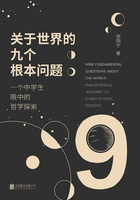
Ⅲ.Eudaimonia to Be Realized in A Polis
To zoom in on the help a polis should provide, eudaimonia has two essential aspects. Firstly, the foundation of eudaimonia is Aristotle's virtue ethics. A person is authentically happy if and only if that person fully exercises her potential of excellence and utilizes rationality to behave in accordance with virtue. This means that a polis should ensure that citizens are virtuous or provide political institutions to cultivate citizens 'virtuous characters. Secondly, eudaimonia is a socialized concept. A person cannot flourish without being involved in a community according to Aristotle's ethics, and that is why apolis is necessary to exist. Take friendship as an example, in Nicomachean Ethics , Aristotle claims, “... for friendship is essentially community... but it is in a common life that they attain this consciousness, and therefore, they naturally desire a life in common”.A polis should then create an environment so that communities from which citizens attain their consciousness and achieve eudaimonia are prevalent. Therefore, a successful polis must prioritize to fulfill these two requirements.
With these requirements in mind, Aristotle then specifies different forms of the government: some are correct, while some are deviant.
Firstly, Aristotle relies on his theory of four causes to justify the existence of rulers. Aristotle believes that a ruler is necessary in order to maintain the order of a community, since authority is the efficient cause of a polis, and this ruling authority is defined by the constitution. Moreover, a ruler is necessary since Aristotle interprets “particular justice” as “equality”among individuals, so certain redistribution of power and wealth is allowed under Aristotle's politics. For this reason, Aristotle favors the Kingship and Aristocracy for a country and the governorship for a region.
Secondly, Aristotle points out that the political education and legislation that invite people to be virtuous are important. In the final section of Nicomachean Ethics , he contends, “He who is to be good must be well nurtured and trained, and thereafter must continue in a likely excellent way of life.” Furthermore, proper political education must be individuated. Aristotle believes that education is analogous to medical treatment, and individual treatment is apparently better than treatment by masses. He also suggests that a proper educational system must recognize individuals 'unique talents and personalities. As a result, that educational system is not only efficient but also genuinely beneficial to cultivate individuals 'virtuous characters.
To sum up, a desirable political system helps citizens to pursue eudaimonia, and two conditions play an important role to actualize this regulative ideal, namely, the existence of authority that stabilizes order and secures justice, and political education and legislation which help people become capable citizens.